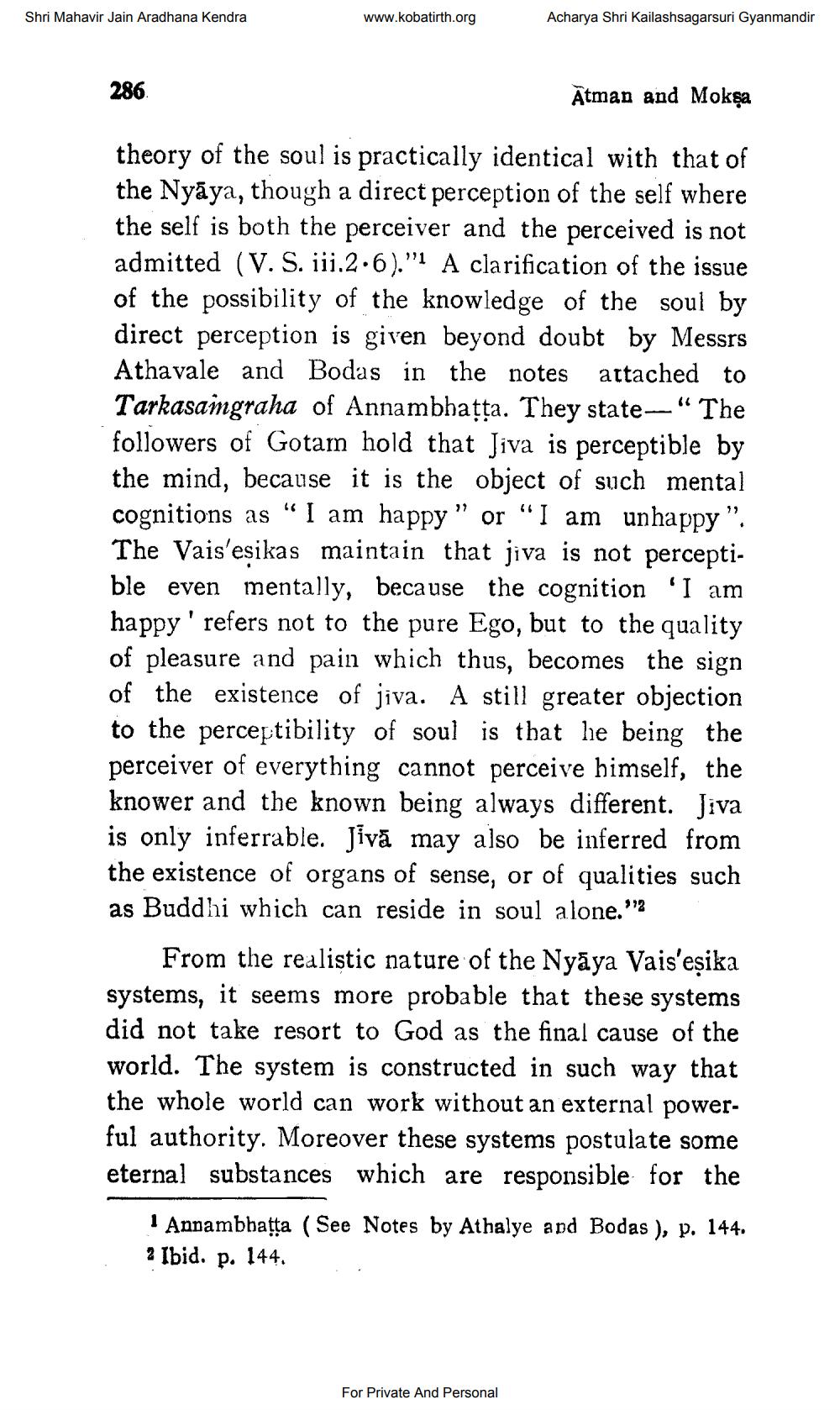________________
Shri Mahavir Jain Aradhana Kendra
www.kobatirth.org
Acharya Shri Kailashsagarsuri Gyanmandir
286
Ātman and Moksa
theory of the soul is practically identical with that of the Nyāya, though a direct perception of the self where the self is both the perceiver and the perceived is not admitted (V. S. iii.2.6)."'1 A clarification of the issue of the possibility of the knowledge of the soul by direct perception is given beyond doubt by Messrs Athavale and Bodas in the notes attached to Tarkasamgraha of Annambhațța. They state- "The followers of Gotam hold that Jiva is perceptible by the mind, because it is the object of such mental cognitions as “I am happy" or "I am unhappy". The Vais'esikas maintain that jiva is not perceptible even mentally, because the cognition 'I am happy' refers not to the pure Ego, but to the quality of pleasure and pain which thus, becomes the sign of the existence of jiva. A still greater objection to the perceptibility of soul is that he being the perceiver of everything cannot perceive himself, the knower and the known being always different. Jiva is only inferrable. Jivā may also be inferred from the existence of organs of sense, or of qualities such as Buddhi which can reside in soul alone."
From the realistic nature of the Nyāya Vais'eșika systems, it seems more probable that these systems did not take resort to God as the final cause of the world. The system is constructed in such way that the whole world can work without an external powerful authority. Moreover these systems postulate some eternal substances which are responsible for the
1 Anpambhatta (See Notes by Athalye and Bodas ), p. 144. 2 Ibid. p. 144.
For Private And Personal




